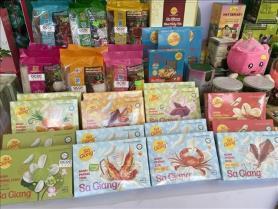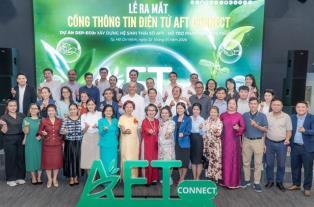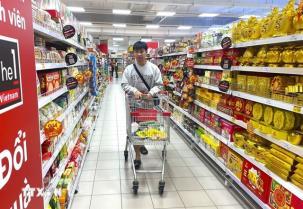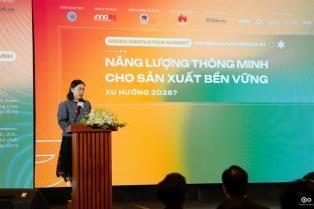To create breakthroughs in agriculture, Khanh Hoa will continue to develop signature crops and livestock, including grapes, aloe vera, green asparagus, onions, garlic, goats, sheep, bird’s nests, mangoes, purple sugarcane, durians, and high-quality rice varieties.
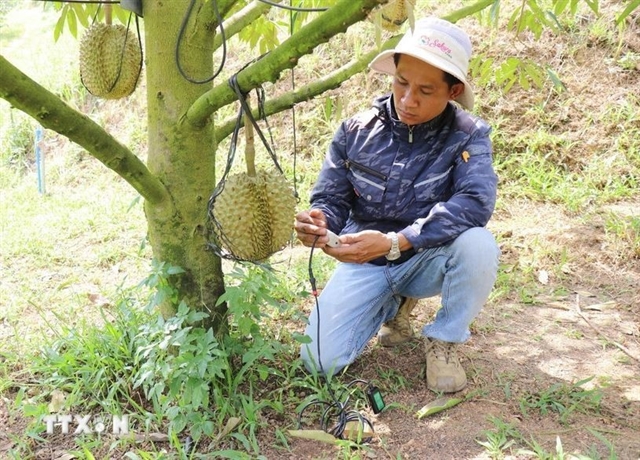
HÀ NỘI — The south-central province of Khánh Hòa is stepping up efforts to modernise agriculture through science, technology, and digital transformation, in line with the Politburo's Resolution No. 57 on breakthroughs in science, technology, innovation, and national digital transformation.
The province has recognised the use of advanced technology and intelligent solutions as a crucial factor in enhancing productivity, improving product quality, and developing a modern agricultural ecosystem.
Sustainable farming practices on the rise
Many local cooperatives and farms are adopting circular economic models and advanced cultivation standards such as VietGAP and organic farming. At Sakura Farm in Đông Khánh Sơn commune, high-tech durian cultivation spans 45 ha, with Musang King and Ri6 varieties already in harvest. The farm stands out for its comprehensive use of automated irrigation, fertilisation, and AI-powered soil analysis, complemented by drone monitoring for crop management.
Farm owner Nguyễn Phạm Minh Mẫn said these applications have strengthened sustainability, ensuring ecological balance while producing high-quality, chemical-free durians.
Research and technology transfer are also expanding. The Nha Hố Research Institute for Cotton and Agriculture Development has pioneered biotechnology and genetic techniques to develop high-yield, climate-adapted varieties of grapes, apples, asparagus, aloe vera, rice, mangoes, longans, and jackfruit. By 2030, the institute plans to prioritise pest- and climate-resilient crops, microbial and nano-technology for soil improvement, IoT-based cultivation systems, and AI-powered pest management.
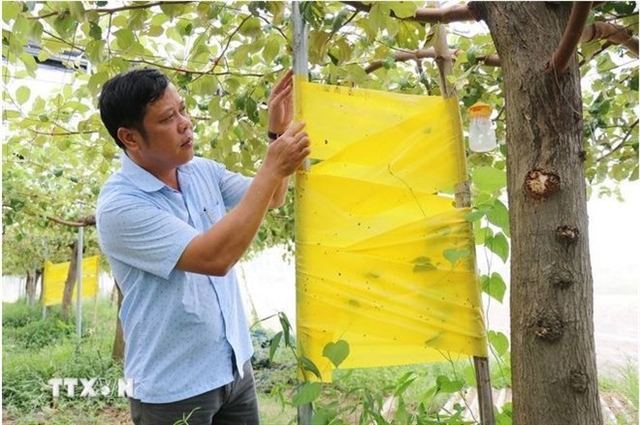
Towards high-tech agriculture
According to the provincial Department of Agriculture and Environment, Khanh Hoa now has over 1,003 ha under high-tech farming and more than 5,599 ha certified under USDA-NOP (US), JAS (Japan), and EU organic standards. The province has issued 163 planting area codes covering over 5,171 ha, along with three packaging facility codes for mango and durian exports to the EU and China.
Key crops such as durian, mango, pomelo, asparagus, and aloe vera have penetrated export markets, while grapes and apples have a high profit margin. High-tech grape cultivation can generate VNĐ600 million per hectare per crop, with two crops annually.
To create breakthroughs in agriculture, Khánh Hòa will continue to develop signature crops and livestock, including grapes, aloe vera, green asparagus, onions, garlic, goats, sheep, bird’s nests, mangoes, purple sugarcane, durians, and high-quality rice varieties. The province is also encouraging businesses, cooperatives, and organisations to invest in building closed agricultural value chains, applying digital technology to increase the added value of local farm products.
The province is conducting reviews and planning production zones scientifically, based on natural conditions and local potential. It focuses on fruit-growing areas, essential oil crops, high-tech farming, and agro-ecotourism models. Efforts are being made to standardise production processes, improve seed quality, build agricultural brands, and apply digital technology in market monitoring and product consumption.
Khánh Hòa will mobilise resources from programmes and projects to invest in research on crop and livestock varieties, transfer farming and processing technologies to diversify products, develop digital human resources, and foster partnerships among businesses, scientists, and farmers within sustainable production chains. The implementation of Resolution 57 is expected not only to renew the province’s growth model but also to modernise agriculture, improve livelihoods, and promote rural economic development in the new period. — VNS

